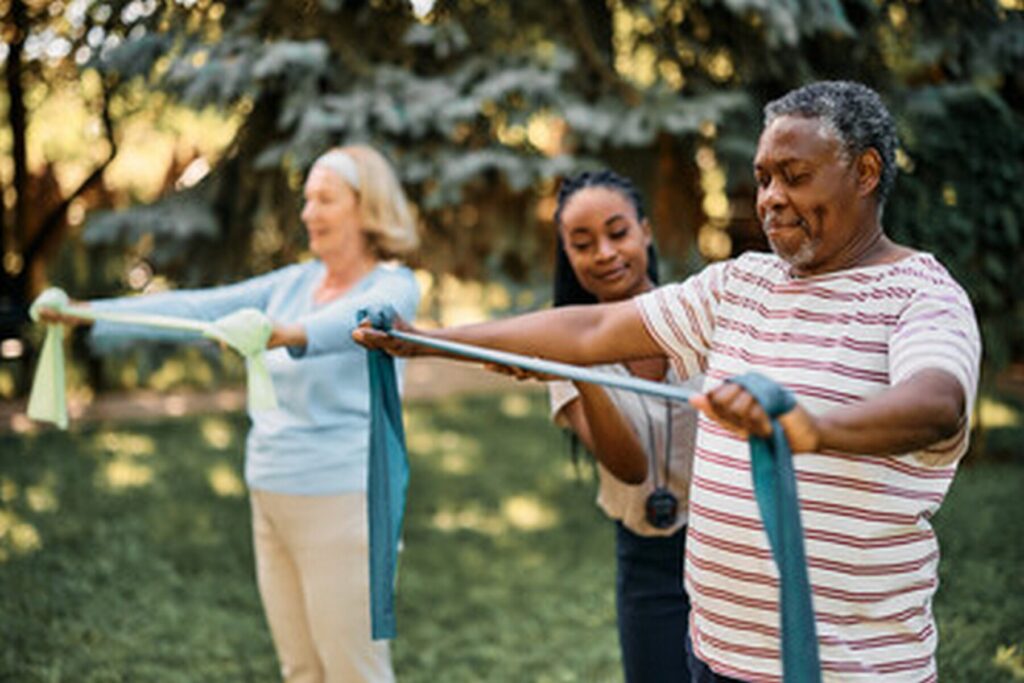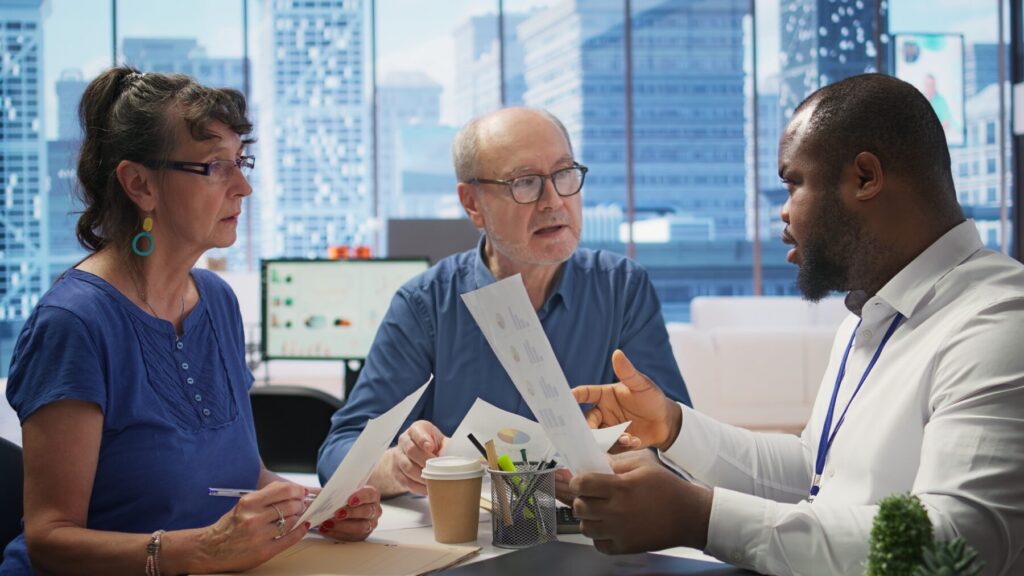Healthy Aging Month is observed annually by organizations including the National Institute on Aging with the goal of promoting ways to maintain and improve our health as we age. Have you ever heard the saying, “the best time to plant a tree was twenty years ago; the second best time is now?” Well, the same can be said for healthy aging. Even if the best time to begin establishing our healthy habits was years ago, the time is now to make choices to support healthy aging. The choices we make and habits we form today will build the foundation for future health and wellbeing.
“Healthy aging is the process of maintaining good physical, mental, and social health and well-being as we grow older.”
Centers for disease control and prevention, 2024
Healthy aging encompasses whole-person wellbeing. Let’s talk about some specific areas of wellbeing that can support healthy aging.
Nutrition. The 2020-2025 Dietary Guidelines for Americans recommend following a healthy dietary pattern at every life stage. This means that what you eat – and how much – affects your health throughout your life, from infancy to older adulthood. A healthy eating pattern should be individualized to each person based on their personal preferences, budget, and cultural considerations. MyPlate is a visual meal planning tool that can help guide your choices with a focus on nutrient dense foods, which are foods that contain a lot of essential nutrients relative to their caloric content. For those living with diabetes, the Diabetes Plate Method is a similar plate method of meal planning that is designed to support glycemic control.

Physical activity. Being physically active is an important part of healthy aging. Vary your exercise routine and incorporate cardiovascular (aerobic) exercise, resistance (muscle-strengthening) training, and balance exercise for optimal health. Each type of exercise provides its own benefits. Aerobic exercise strengthens your cardiovascular system. Resistance training builds muscle strength, which contributes to metabolic health and reduces risk of falls. Balance training, including tai chi and some types of yoga, improves stability and also reduces fall risk. Physical activity guidelines recommend aiming for at least 150 minutes of moderate physical activity each week along with resistance training all major muscle groups twice per week. Try to be active most days of the week. Physical activity has numerous health benefits.
Mental and emotional wellbeing. Social connection has been shown to be protective against chronic diseases, including cardiovascular disease and dementia. Having a variety of social connections through family, friends, professional organizations, faith based communities, and other settings reduces social isolation and loneliness. Even small interactions, like waving hello to your neighborhood crossing guard in the morning or saying hello to someone you see at the gym each day, can enhance your sense of social connection and confer health benefits. Managing stress, getting enough sleep, and engaging in supportive relationships are additional ways we can support our mental and emotional wellbeing.
Stay on top of your healthcare. Going to the doctor can be stressful, but it’s best to stay current on your wellness visits and recommended health screenings, including preventative care like colorectal cancer screening and mammograms. Check with your healthcare provider for recommendations regarding vaccinations and how to best manage any chronic conditions you have. It’s not unusual to find medical appointments stressful. Try writing down your questions or concerns prior to the visit so you can easily refer to them during the appointment. Bringing someone along to act as your advocate and a second set of ears can also be helpful.

Let’s reiterate an important idea about healthy aging; it’s never too soon or too late to get started on habits to support wellbeing. Want to learn more about active aging or programs available in your area? Reach out to your local Extension County Office to learn what events, programs, and services are being offered in your area. Seniors or their loved ones in Georgia can also reach out to their local Area Agency on Aging to be connected to resources.